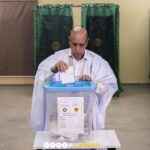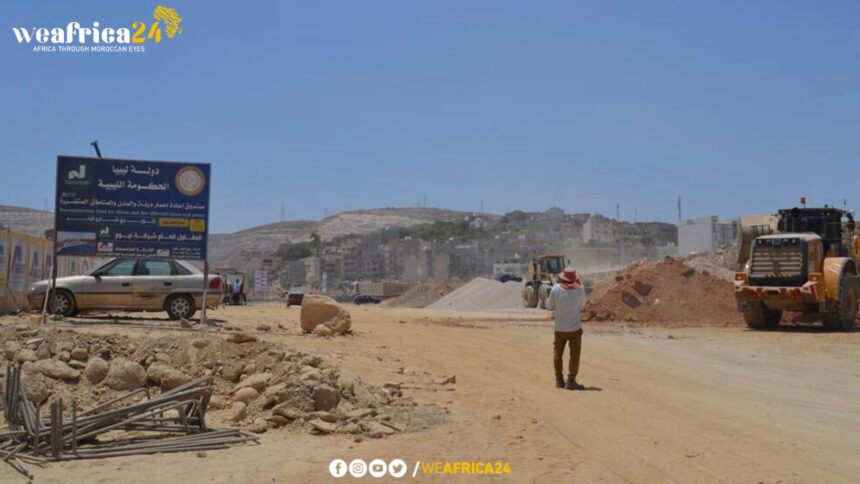Nine months after devastating floods, Derna in eastern Libya is striving incredibly to put itself back on its feet. The catastrophe, between the night of September 10th and 11th, 2023, was a consequence of the passage of Storm Daniel and the breaking of two dams that brought about several thousand deaths. Now, out of a concern for its inhabitants and in the interest of authorities, the city puts itself into reconstruction efforts.
Rebuilding Efforts in Derna
In the dry riverbed of Derna, kids in shorts play by jumping into a hole filled with water. In the background, cranes reshape the city. Abdelkader, a “Libyan National Army” fighter under Marshal Khalifa Haftar, stands on top of a concrete block that suddenly ends at the cliff—the remains of one of the two dams that collapsed during the tempest.
Abdelkader remembers the fateful night: “The dam was not maintained. I then heard a loud ‘Boom!’ when the water broke through.” He pointed to piles of stones, which children use as diving boards, saying, “And families are still buried under the debris below, because there were many houses in the valley. God willing, things will get better. We want new buildings and roads rebuilt.”
Continuous Construction
For months Derna has been a sea of construction. The promenade along the river mouth is barricaded off. Dump trucks, excavators, and cement mixers run day and night. The neighborhoods surrounding what was once a riverbed, but is now a gap of 280 meters down to the sea floor — from a pre-storm width of 73 meters — empty out into the sea. A temporary dirt road has been built to connect the two parts of the city, and several bridges are being constructed.
“Some projects will be finished in August, others in September. But all initiated works must be finished by December. That’s why companies are encouraged to work day and night, seven days a week,” explains Ageila Elabbar, head of the International Cooperation Department at the Libyan Development and Reconstruction Fund. Made in January, this fund was created by the Benghazi-based internationally recognized House of Representatives, replacing another committee which had been set up immediately after the disaster. This fund is headed by one Belkassem Haftar, one of the six sons of Khalifa Haftar.
Leadership and Commitment
A committed Belkasem Haftar, operating from his office in Benghazi, is totally devoted to the reconstitution process. For instance, his commitment is viewed as part of a larger strategyWilson, despite the skepticism borne from years of unmet promises. “We will help everybody. Cities in the west [under the influence of the Tripoli government] are reaching out to us and we are ready to cooperate with them. The development happening in Libya currently will bring Libyans closer due to its need by everybody. People lost trust in governments because of conflicts and no services. No government has so far done what we are doing,” he says confidently.
Signs of Progress
The first signs of change in Derna are playgrounds for children. These parks did not exist before, but they were among the very first orders of business by the Fund. “For us, if the children are happy, the families will be too,” Belkasem Haftar, the Libyan strongman’s nephew, justifies.
One summer evening in mid-June, Mohamed returned to the Garden Street park with his two children: “I never thought in my life I would see these kinds of playgrounds here. Derna will be better than it used to be; she will be great if they continue in this way. I was not expecting the reconstruction to go this fast.”
This present commitment of local and national authorities spells out hope for a better future as Derna continues down the road to recovery. It would not just restore the city but also rebuild the trust and spirit of its people.







